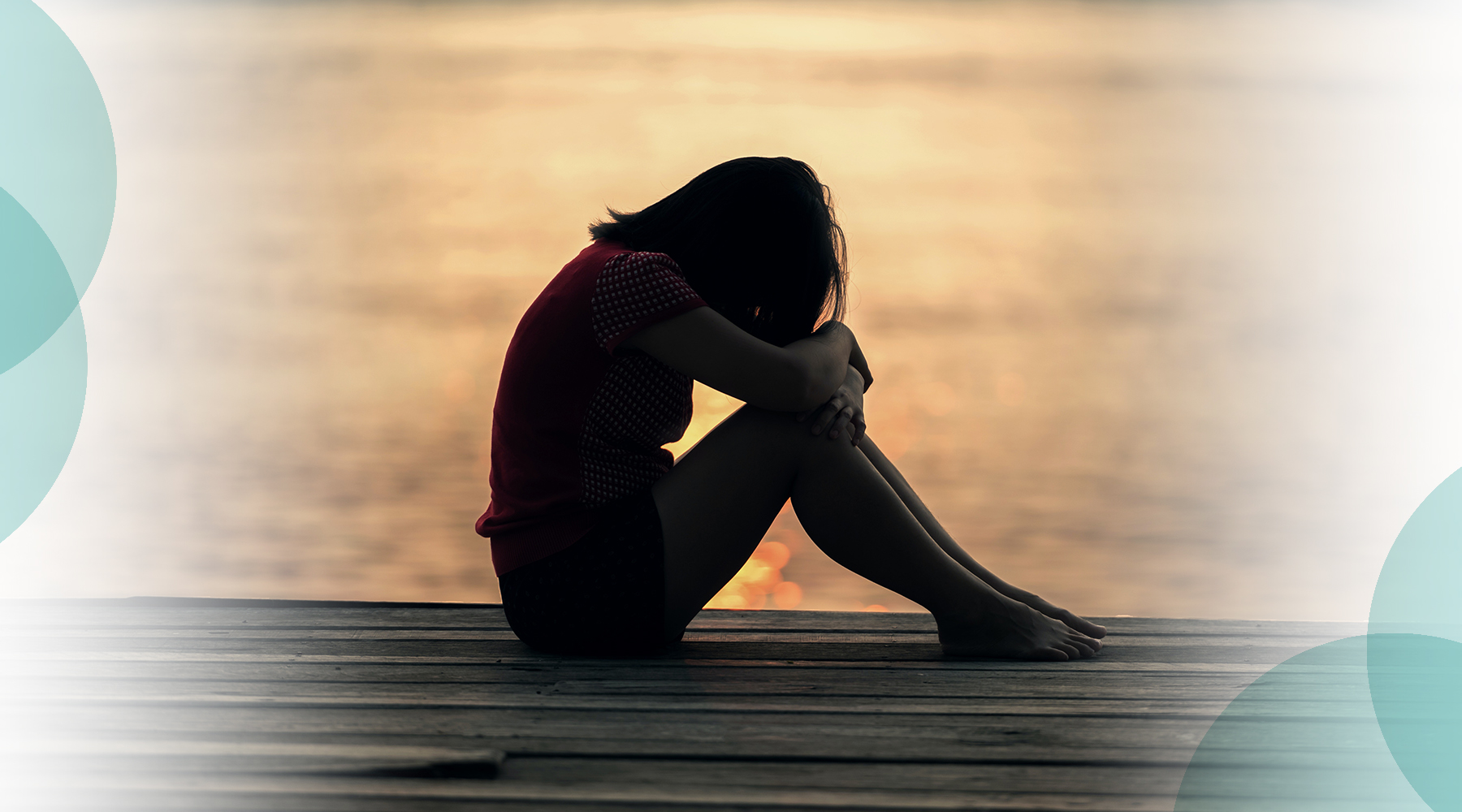When it comes to the things we’re ashamed of, leaving the past in the past is often way easier said than done. Sometimes, the more we realize the error of our ways, the harder it can be to dismiss them. However, it’s important, if not crucial, that we learn to move forward.
Unable to shake feelings of shame, we risk getting stuck on a self-destructive loop, endlessly crippled by the worst parts of our past. And shame shudders can come out of nowhere. According to Psychology Today, a “shame shudder” is the sudden phenomenon that occurs when we recall a regretful or painful part of our past. We might find ourselves struck with negative flashbacks on what started out as a good day and wonder how it happened. The key to preventing shame shudders and improving our mental health is understanding where shame shudders most often stem from, practice, and self-compassion.
When we actively work to send our minds down more positive paths, the more readily we recover our good mood. So if you’re ready to put a stop to negative thinking that triggers shame shudders, let’s get started.
What is a Shame Shudder?
While the term has not been coined by bonified doctors, shame shudders are frequently reported by psychotherapy patients. Sometimes called “shame attacks,” they’re defined by bouts of shame that pop up suddenly and without a clear trigger.
Oftentimes, this seemingly random, self-shaming response is prompted by the sudden recollection of a painful memory. Out of nowhere, you’re hit with a bout of guilt, shame, and anxiety about your past behavior and things only get worse from there.

Shame shudders are not to be confused with intrusive thoughts. These well-documented psychological burdens can spring from almost anything, including desires or fears about the future. Shame shudders, on the other hand, are born out of regretful moments in the past. With that said, the emotional distress caused by both tends to be the same: intense and restless feelings of disgust, discomfort, remorse. They also both lead to spiraling.
The first step to putting a stop to your shame shudders is identifying the source. These are the three most common causes, according to psychologists.
Emotional Wounds

All emotional wounds take time to heal. When pain is inflicted on us, we can’t know how long it will take to resolve the hurt that we feel. And even if we were the victim of what occurred, it’s natural to take on a certain amount of emotional responsibility and oftentimes, what we see as our fair share of blame for what happened.
For instance, let’s say you felt close to someone and you were more vulnerable with them than most people. Let’s say they betrayed you and you felt completely blindsided by it. The next feeling you might experience is shame for trusting them at all. You may then discredit or disregard the positive aspects of what your opening up to someone shows in general sense.
This type of shame is often recurring. It often attaches itself to your future relationships, or lack thereof, and shapes how you approach them to some extent. Every time you are emotionally wounded by someone or something else, it may open you up to unresolved pain that you’re still carrying around, and thus, shame shudders.
Trauma

Trauma can be hard to shake. According to experts, unresolved childhood and adolescent traumas can be some of the most formative, haunting, and lasting triggers. Many adults continuously struggle to cope with shame and regret connected to harmful childhood events. Recalling them at all can drudge up feelings once thought to be long dissipated. And realizing we’re not over something we thought we were can be all the more disheartening.
No matter how far in the past (or how recent, for that matter), memories associated with trauma can come on suddenly and viscerally, leading to a swarm of shame shudders.
Generally, trauma is not something that tends to resolve itself. It’s important that it’s acknowledged and addressed in order to move forward, no matter how far in the past. Here are 8 reasons it’s hard to overcome childhood trauma, and how to start coping today.
Unresolved Guilt
We all make mistakes and we’re all well aware of that fact by now. But that logic doesn’t shape our emotional reality nearly as formatively as our feelings. And so, forgiving ourselves is often hardest, no matter how easily we may find it to forgive others or understand forgiveness as a concept.
The things we can’t forgive ourselves for tend to be the ones that never leave us fully alone. With that said, feeling remorse is not a bad thing. It means we have a conscience. There’s a big difference between reflecting on our actions and dwelling. Although, spotting the difference sometimes takes practice.

Guilt related to something we’ve wrongfully done or the pain we’ve caused others cannot exist without empathy, sympathy, desire to do better, or compassion for others. When we reflect on our actions with a more informed perspective, we often wish we would’ve handled certain situations better, or differently. But ruminating on what could’ve or should’ve is bad for our health. And it’s no way to live. After all, we can only move forward and learn from where we’ve been. So if you’re beating yourself up over something you cannot change, now’s the time to make a change for the better with your own well-being in mind.
For those struggling with unresolved guilt, the shame attached to past events often have a bearing on future events. Guilt can often create blinders that cause us to unwittingly repeat the same mistakes that led to the feeling in the first place. And the only way to truly change course is to change our way of thinking.
No matter what mistakes we’ve made, we’re all only human. And so, it’s always an important practice to learn to show ourselves the same compassion we more readily and willingly others we care about. But more on that in a second.
Reducing Shame Shudder
It’s time to cut yourself some slack. And a little support can go a long way. If you don’t feel able to resolve your internal shame on your own, there is never any shame in seeking help. The good news is, no matter what sends a shame shudder up and down your spine, there are constructive ways to prevent and alleviate those mental heebie-jeebies on a regular basis.
Here are some of the best, therapist-approved ways to stop self-shaming spirals.
Making Amends

Whether it’s for ourselves or others, forgiveness is healing. When dealing with unresolved shame, discussing the source of our shame and feeling seen and heard is often key. And it’s not good to internalize our guilt. In turn, expressing yourself to the person those feelings are directly tied to can often help significantly. If you did something that you don’t think was okay, telling that person it wasn’t okay can be a powerful step towards betterment for you both.
Perhaps you need to apologize to their face. Maybe you don’t know exactly what you need, but you know that you need to find closure through contact. If you’re not able to have a conversation, consider writing them a letter. Even if you never send it, writing it will likely provide you with clarity, relief, and peace of mind.
Changing Your Thought Patterns

Catching a shame spiral early on is one of the best ways to get in front of it. When you see yourself going down an old familiar path, just stop. Whether you shout it or say it in your head, sometimes a stern “that’s enough” is all it takes.
Other times, of course, it’s not that simple. Not only do shame shudders seemingly come out of nowhere, but they also have a way of taking control of our current state of mind with little warning. And when shame has started calling the shots without your consent or control, this is when practicing self-compassion is most useful, and more so, critical.
Practicing Self Compassion
To err is human, but to forgive ourselves takes real work. Oftentimes, we feel we need someone else’s forgiveness to move on when in reality, we need to forgive ourselves. Self-compassion is a skill that we all must learn (and repeatedly work on) as we go. When it comes down to it, compassion is a matter of emotional awareness, a lack of judgment, acceptance, and an innate kindness we express towards those who are suffering. And so, self-compassion is giving those things to ourselves when we need them most.
Obviously, forgiving ourselves is often more difficult than forgiving someone else. As the only ones who live inside our head and heart, it’s instinctive to hold ourselves the most accountable, responsible, and to blame. But we have to accept the things we cannot change if we are to really evolve. This reality makes self-compassion paramount, especially when dealing with shame shudders. Acknowledge the painful event, your part it in, and absolve yourself. Maybe the shame shudders will come back and maybe they won’t. With forgiveness, it may not happen all at once. It might happen a little bit at a time.
But you must start somewhere.

The only person we must work to be better than is the person we were yesterday. Betterment is not a competition. It’s a matter of healing and growing on a path that’s rarely straight or narrow. Chances are, you already are better than you were back then. It’s just hard to see how far you’ve come if you’re still beating yourself up over past mistakes. But we’re growing all the time.
The version of ourselves we have the hardest time forgiving mostly exists in retrospect. Assuming we learned something from our missteps, we are in a new, more evolved, and hopefully more mature place. Look back at yourself with kinder, more knowing, eyes. And look with the awareness that past you deserve compassion just as much as present you does. What would you say to a friend who went through the same thing? It’s helpful to think about your past from an objective place, like a friend. Would it be easier to show compassion to someone else? Would you be able to forgive if it wasn’t you?
You deserve forgiveness just as much as anyone else. And you owe it to yourself. If you struggle with regret, resentment, and anger, here are some psychologist-approved ways to work on finding forgiveness, especially when you cannot forget. We cannot change our way of thinking overnight, so don’t get discouraged. As with all true healing, self-forgiveness isn’t a quick fix. Or as Martin Luther King Jr. once noted, “forgiveness is not an occasional act, it is a constant attitude.”













